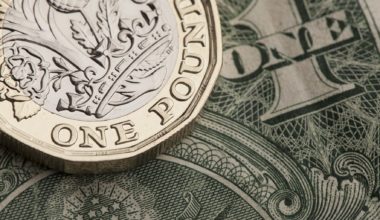Group of 20 (G20) finance ministers last week backed a historic tax plan designed to stop multinational corporations shopping around for the lowest-tax rate. The plan, which was agreed by leaders of the Group of 7 major economies (G7) last month, will change the global corporate tax landscape in two fundamental ways: first, it will impose a global minimum corporate tax rate of 15%, and second, it will mandate that companies pay more tax in the jurisdictions their products are sold than those in which they declare profits.
This will undoubtedly affect major multinationals like Facebook and Amazon, which declare profits in lower-tax jurisdictions rather than where they generate most of their sales. This may likely impact the bottom lines for investment holdings in many portfolios in the short term. But in the long-term we do not expect to see significant negative effects.
If anything, we expect a global corporate tax to create a more competitive corporate landscape, in which high profit, high growth companies (the type of businesses Dominion invests in) attain a further advantage against their peers. These multinational companies built their businesses by harnessing powerful global structural trends, by leading the world in innovation and technology, not by minimising their tax bills.
Fears of slowdown in China overblown… but there may be more stimulus on the way
China auto sales were down 12.4% year-on-year (YoY) in June (the second consecutive month of declines), but this decline was not due to weaker demand but because of the global shortage of semi-conductors continuing to hurt supply of new cars. Sales of new energy vehicles (including battery-powered and hybrid) jumped +139% in June, as that sector continues to power ahead. Total Chinese exports of all goods jumped +32.2% YoY in June, much higher than forecast, while imports surged +36.7%. China’s trade surplus in June came in much higher than expected at $51.5 billion, the largest recorded since January. Foreign direct investments into China surged +28.7% YoY between January and June 2021. These latest data continue to signal that the Chinese economy is recovering at a strong pace. We may see a slowing in the growth rate, but that is normal during a recovery (the peak growth rate is typically seen early in a recovery).
Despite the strong economic data, the government in China is looking to boost economic growth through new supportive policies, and we may see more of this. The government has reduced the reserve requirement for banks (a major tool in its monetary policy arsenal) for the first time since the height of the pandemic. This frees up capital for banks to lend rather than hold as reserves. Monthly lending data showed economy-wide growth in debt and equity finance outstanding at +11% YoY following this policy change. Chinese economic stimulus could go a lot further, if needed, and this could be an important story through the remainder of 2021.
Disclaimer: The views expressed in this article are those of the author at the date of publication and not necessarily those of Dominion Capital Strategies Limited or its related companies. The content of this article is not intended as investment advice and will not be updated after publication. Images, video, quotations from literature and any such material which may be subject to copyright is reproduced in whole or in part in this article on the basis of Fair use as applied to news reporting and journalistic comment on events.


